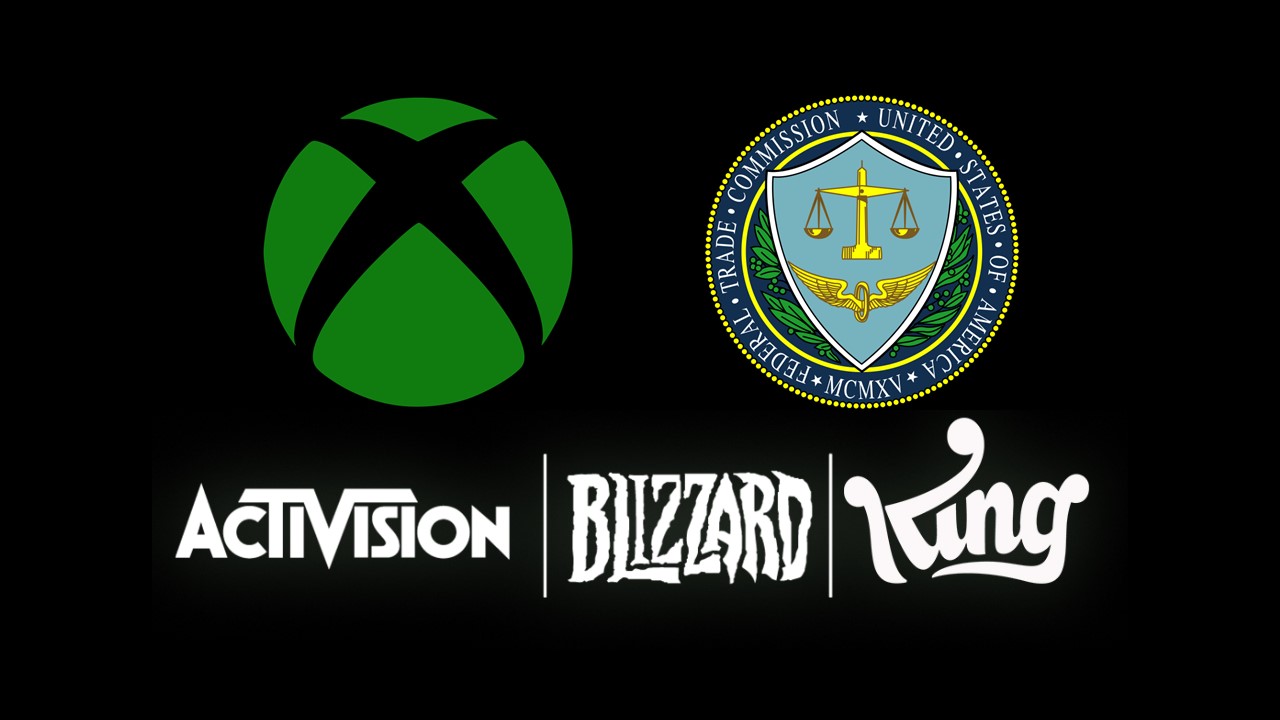FTC's Appeal Against Microsoft's Activision Blizzard Acquisition

Table of Contents
The FTC's Concerns Regarding Anti-Competitive Practices
The FTC's core argument centers on the potential for anti-competitive practices stemming from Microsoft's acquisition of Activision Blizzard. This behemoth merger raises significant concerns about market power and its impact on both competitors and consumers.
Market Domination Concerns
The FTC argues that this acquisition would grant Microsoft undue control over the video game market, significantly impacting the console and subscription service sectors. This dominance stems from gaining control over several immensely popular gaming franchises.
- Control over key franchises: Activision Blizzard boasts iconic titles like Call of Duty, World of Warcraft, Candy Crush Saga, and many more. Microsoft acquiring these franchises gives them unparalleled control over a substantial portion of the gaming market.
- Potential to stifle competition: The FTC worries that Microsoft could leverage this control to stifle competition from other game developers and publishers. This could lead to a less innovative and dynamic gaming landscape.
- Reduced consumer choice and potentially higher prices: With less competition, consumers might face reduced choices and potentially higher prices for games and subscriptions. The fear is that Microsoft could prioritize its own platforms, squeezing out rivals.
- Concerns about exclusivity deals: A major concern is Microsoft's potential to create exclusive deals, limiting the availability of Activision Blizzard titles on competing platforms like PlayStation, harming rival companies and potentially limiting consumer choice.
Harm to Competitors and Consumers
The FTC alleges that the merger will directly harm competitors by limiting their access to vital games and potentially lead to higher prices or reduced quality for consumers.
- Exclusivity of key Activision Blizzard titles: A key concern is Microsoft making titles like Call of Duty exclusive to its Xbox ecosystem, harming PlayStation and other platforms.
- Reduced incentives for innovation: With less competition, the incentive for innovation among competing game developers could diminish, potentially leading to a stagnation in game quality and features.
- The possibility of a less dynamic gaming market: The FTC fears a less competitive market could mean slower innovation, fewer choices for consumers, and potentially higher prices.
Microsoft's Defense and Proposed Remedies
Microsoft vigorously defends the acquisition, arguing that it will benefit consumers and foster innovation within the gaming industry. They've also offered concessions to address the FTC's concerns.
Microsoft's Arguments Against Anti-Competitive Behavior
Microsoft counters the FTC's claims by asserting that the acquisition will bring numerous benefits to gamers.
- Multi-platform availability of Activision Blizzard games: Microsoft has pledged to bring Activision Blizzard games to multiple platforms, including PlayStation, aiming to alleviate concerns about exclusivity.
- Investment in game development and market expansion: Microsoft argues that the acquisition will lead to increased investment in game development, expanding the overall gaming market and benefiting consumers.
- Arguments for a dynamic and competitive gaming market: Microsoft emphasizes that the gaming market is already highly competitive with numerous players, minimizing the impact of the acquisition on overall market dynamics.
Proposed Concessions and Regulatory Compliance
To address the FTC's concerns and potentially avoid further legal battles, Microsoft has offered various concessions.
- Long-term agreements for Call of Duty on PlayStation: Microsoft has proposed long-term agreements to guarantee the availability of Call of Duty on PlayStation, addressing a major concern raised by the FTC.
- Potential structural remedies involving divestments: To further alleviate concerns, Microsoft has indicated a willingness to consider structural remedies, such as divesting certain assets.
- Active engagement with regulatory bodies: Microsoft has demonstrated its commitment to working with regulatory bodies to ensure fair competition and compliance with regulations.
Implications and Potential Outcomes of the FTC's Appeal
The FTC's appeal against Microsoft's Activision Blizzard acquisition has far-reaching implications, impacting future mergers and acquisitions in the gaming industry and broader antitrust enforcement.
Impact on Future Mergers and Acquisitions in the Gaming Industry
The outcome of this case will set a crucial precedent for future mergers and acquisitions in the gaming sector.
- Stricter regulatory scrutiny: A ruling against Microsoft could lead to significantly stricter regulatory scrutiny of large gaming mergers in the future.
- Impact on investment climate: The outcome could influence the overall investment climate within the gaming sector, impacting future deal-making.
- Shifts in market dynamics: The case will undoubtedly influence market dynamics and strategic decision-making among gaming companies.
Broader Implications for Antitrust Enforcement
This case's outcome extends beyond the gaming industry, potentially reshaping antitrust enforcement in the tech sector as a whole.
- Assessing market power in digital markets: The case will establish standards for assessing market power and competitive harm in the rapidly evolving digital landscape.
- Influencing future antitrust litigation: The ruling will heavily influence future antitrust litigation involving large tech acquisitions.
- Impact on the role of regulatory bodies: The case's outcome will impact the role and effectiveness of regulatory bodies in overseeing mergers and acquisitions in the tech industry.
Conclusion
The FTC's appeal against Microsoft's Activision Blizzard acquisition is a high-stakes legal battle with far-reaching implications for the gaming industry and antitrust law. The arguments presented highlight the complexities of defining market power in the digital age. The outcome will significantly influence future mergers and acquisitions and how regulatory bodies approach antitrust enforcement in the tech industry. Stay informed about developments in this landmark case and keep following the FTC's appeal against Microsoft's Activision Blizzard acquisition for the latest updates and analysis. Understanding the nuances of this case is crucial for anyone interested in the future of the gaming industry and antitrust regulation.

Featured Posts
-
 Addressing Potential Concerns A Browns Insider On Deion And Shedeur Sanders
Apr 26, 2025
Addressing Potential Concerns A Browns Insider On Deion And Shedeur Sanders
Apr 26, 2025 -
 Analyzing The Contribution Of European Shipyards To Russias Arctic Gas Industry
Apr 26, 2025
Analyzing The Contribution Of European Shipyards To Russias Arctic Gas Industry
Apr 26, 2025 -
 The Osimhen Transfer Manchester Uniteds Financial Hurdles
Apr 26, 2025
The Osimhen Transfer Manchester Uniteds Financial Hurdles
Apr 26, 2025 -
 The Trump Factor Unforeseen Unity In Canadas Upcoming Election
Apr 26, 2025
The Trump Factor Unforeseen Unity In Canadas Upcoming Election
Apr 26, 2025 -
 Florida A Cnn Anchors Personal Paradise
Apr 26, 2025
Florida A Cnn Anchors Personal Paradise
Apr 26, 2025
